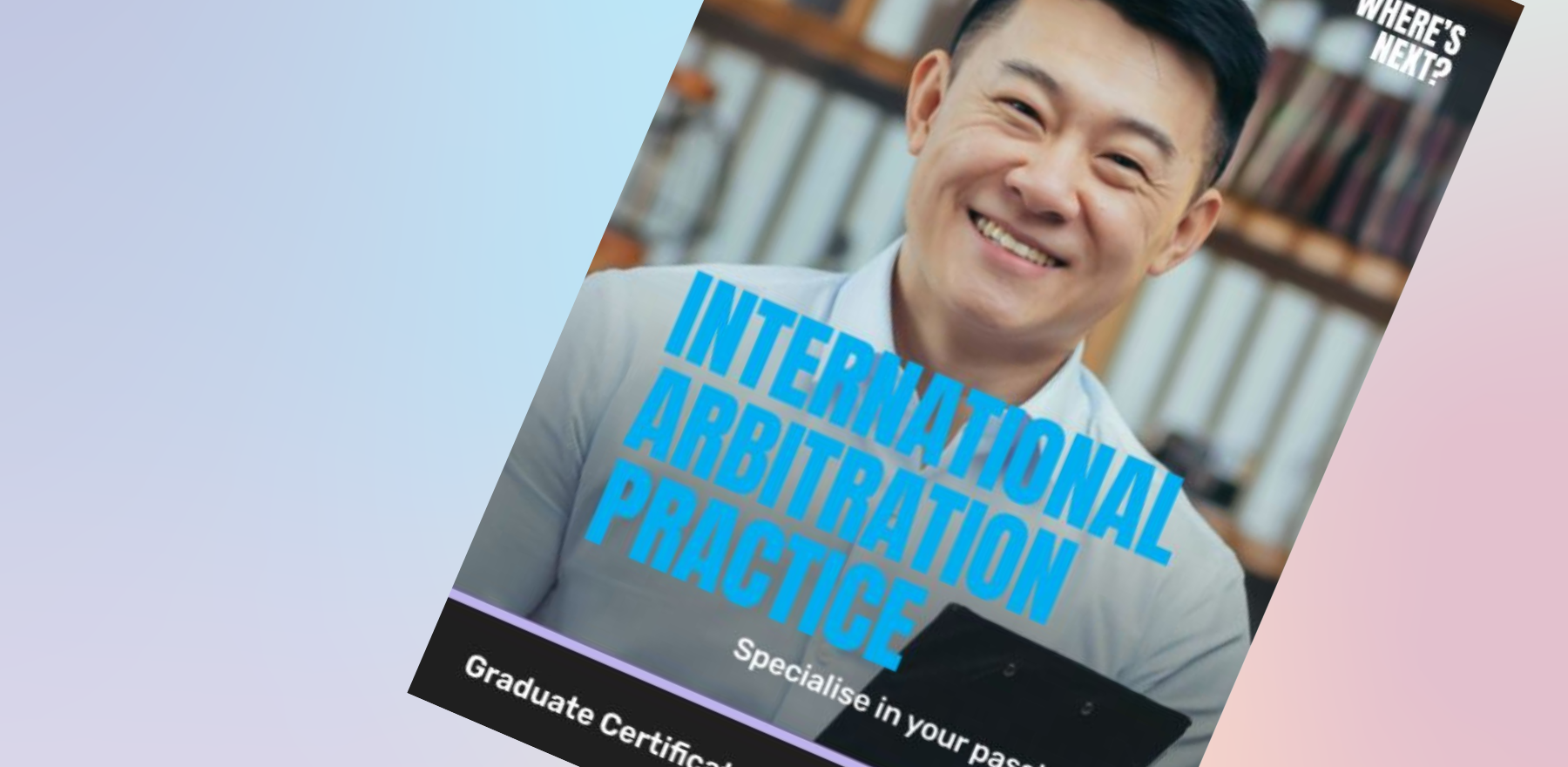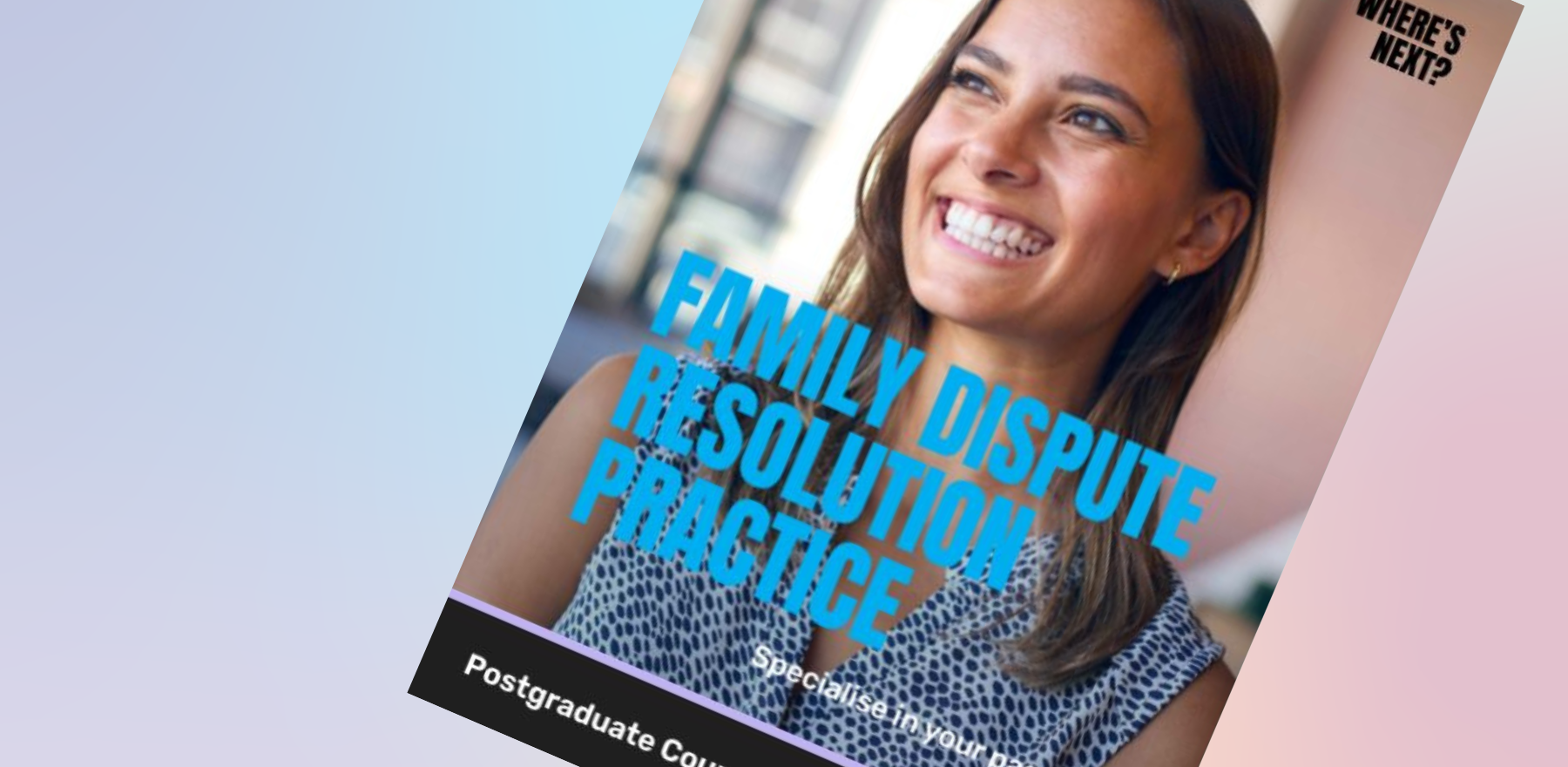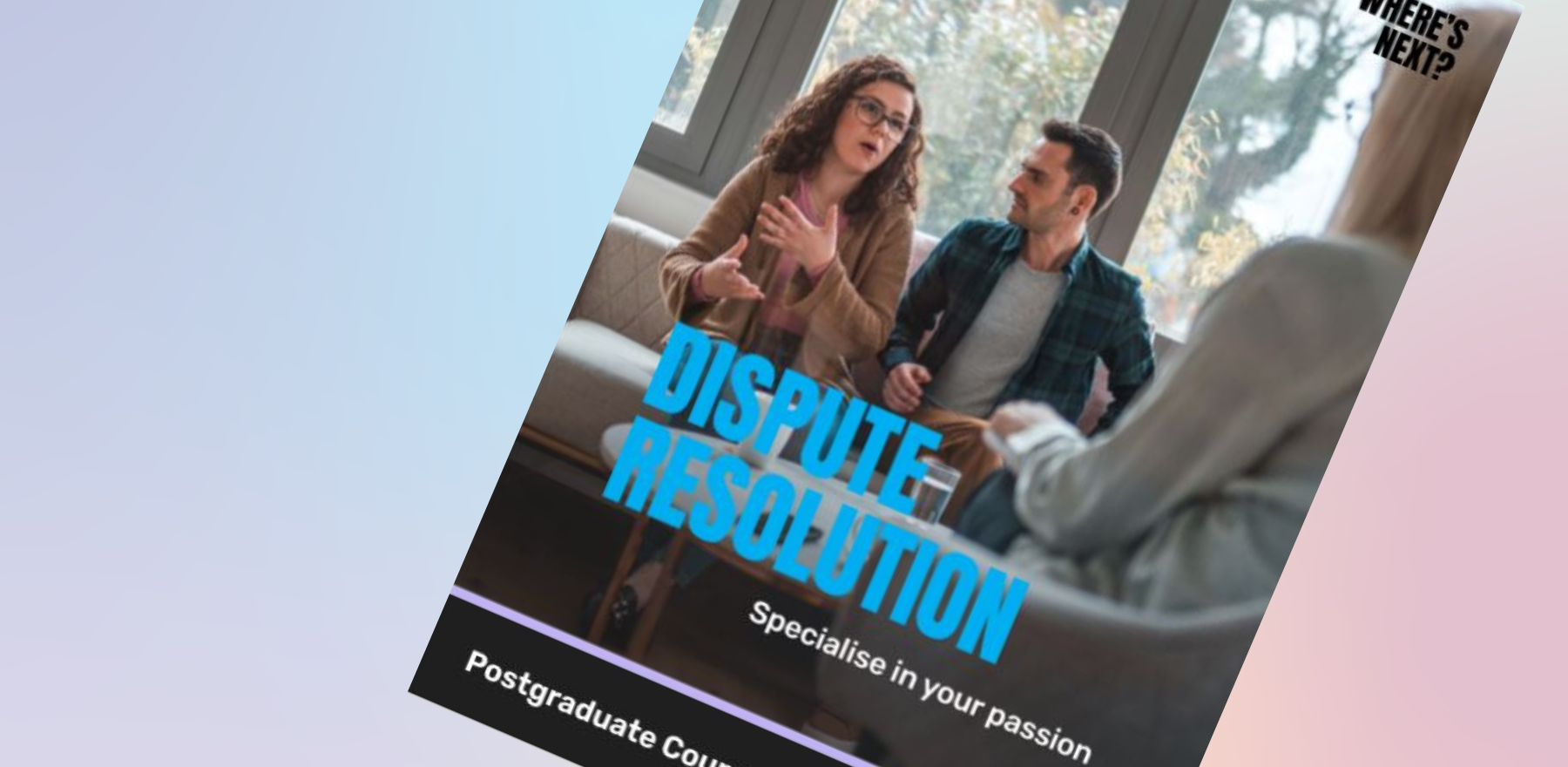See More (11)
11 results showing for '[]'
11 results showing for '[]'

Changes to Mediator Accreditation: What You Need To Know with Linda Kochanski AM
Linda Kochanski AM is a key figure in the transition from the National Mediator Accreditation System (NMAS) to the Australian Mediator and Dispute Resolution Accreditation Standards (AMDRAS). Linda sheds light on these significant accreditation changes and Jeffrey Roth, Head of Short Courses at the College, discusses the new Lawyer Mediation Accreditation (LMA) Scheme recently announced by the Law Society of NSW.
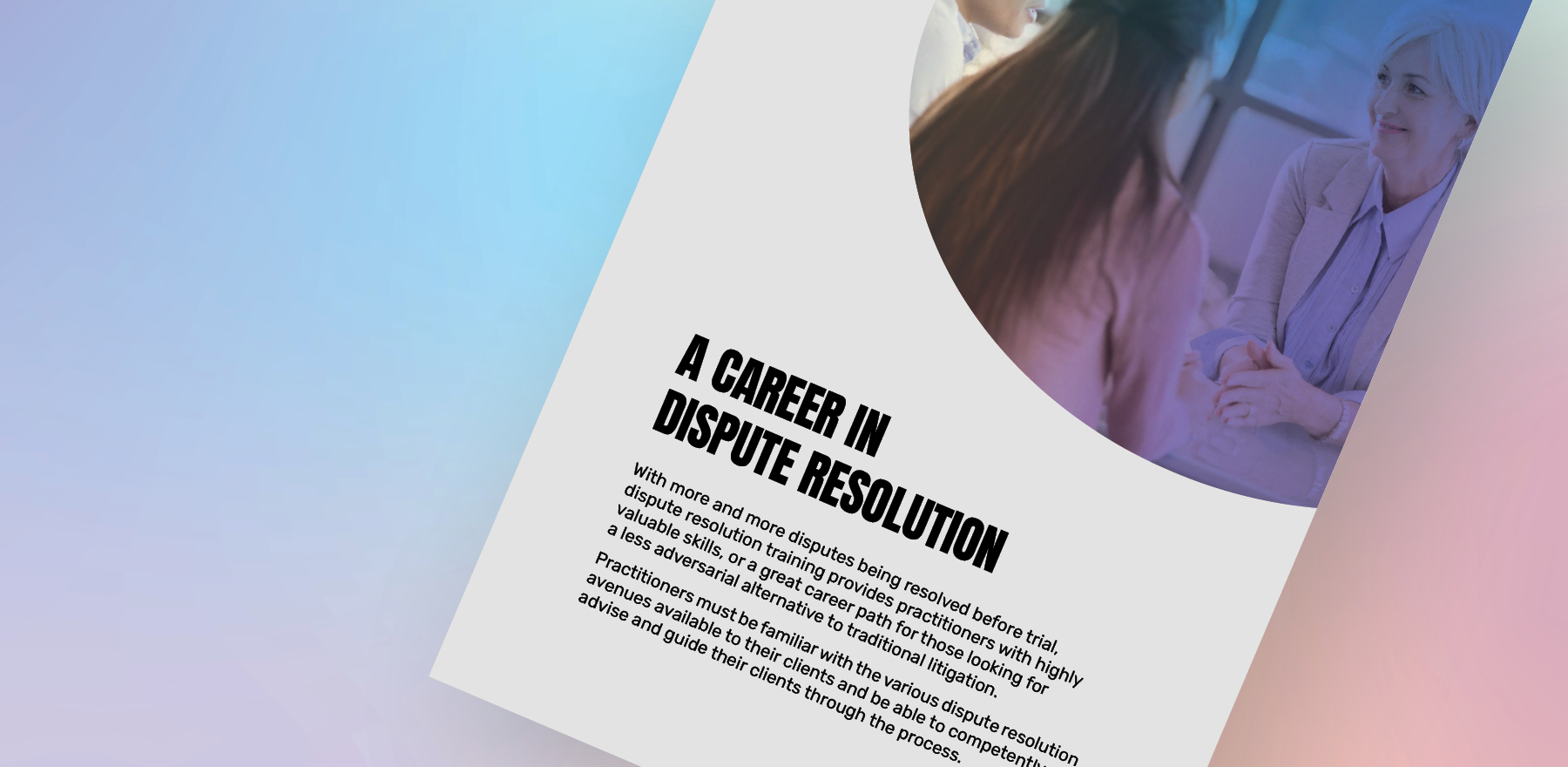
Your Guide to a Career in Mediation and Dispute Resolution
Download this guide to learn more about Dispute Resolution in a nutshell, the core expertise of a Dispute Resolution practitioner, the personal strengths of a Dispute Resolution practitioner, related areas of expertise, as well as specialisation options in Dispute Resolution such as Mediation, Family Dispute Resolution, and Collaborative law.
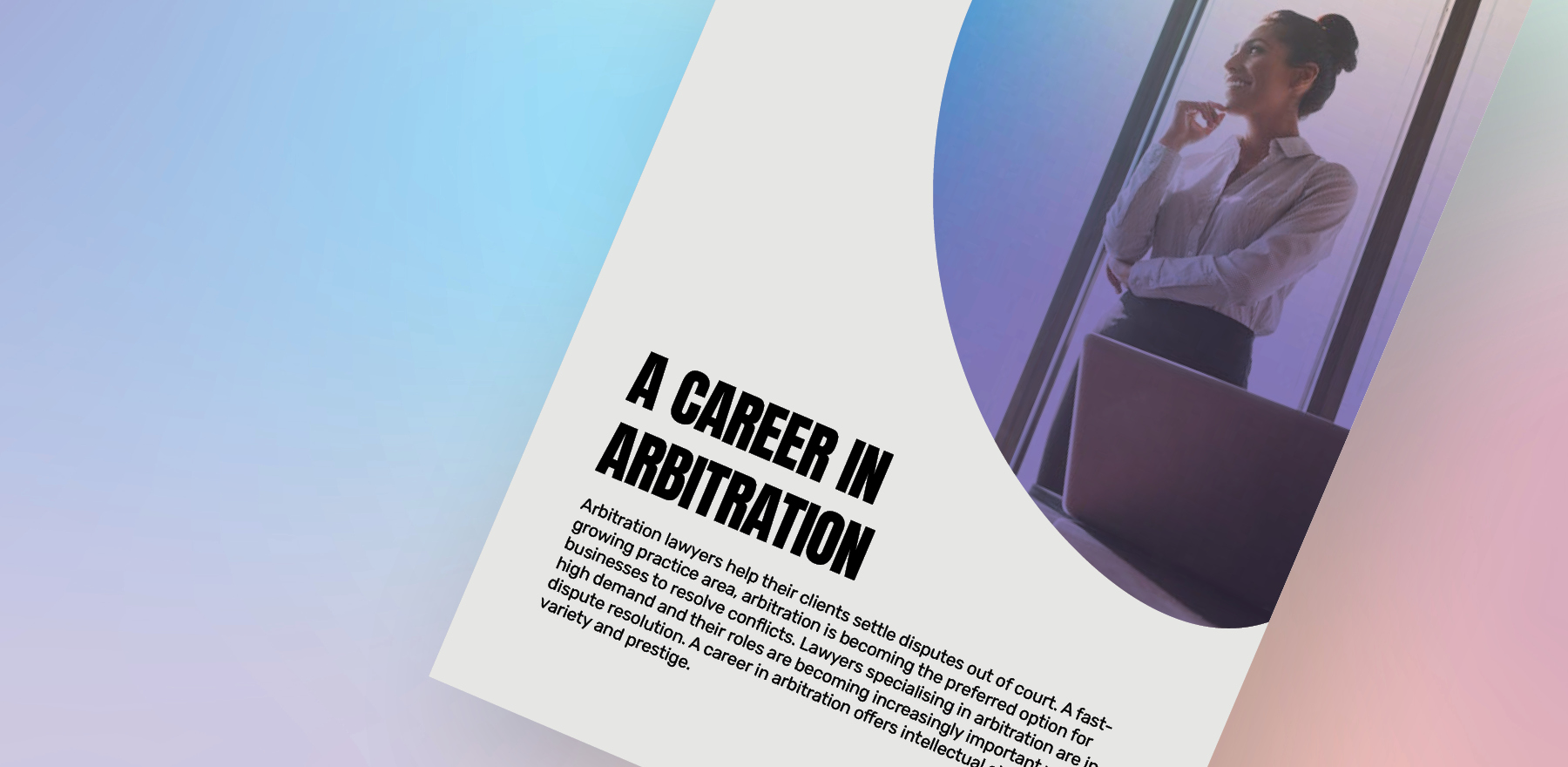
Your Guide to a Career in International Arbitration
Download this guide to learn about a Career in International Arbitration. International arbitration is sometimes called a hybrid form of international dispute resolution, since it blends elements of civil law procedure and common law procedure, while allowing the parties a significant opportunity to design the arbitral procedure under which their dispute will be resolved.
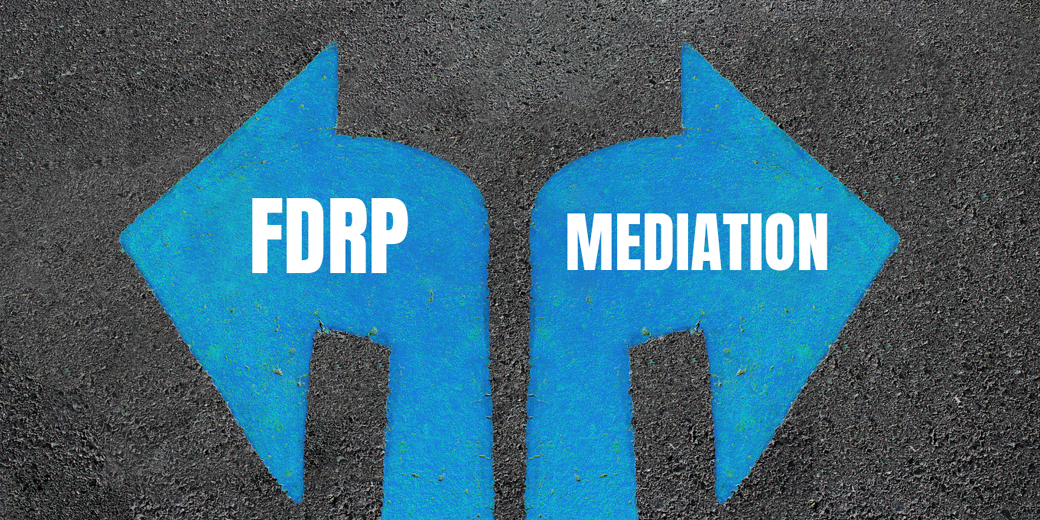
Mediation or FDRP: Which path is right for you?
Considering a career in dispute resolution? You’re onto something. Helping people find resolutions to their problems – strategically and cost-effectively – is stimulating and rewarding work. But how do you get into the field?
There are several different pathways available to you, each requiring specific training and experience. Here, we’ll take a closer look at the two different specialisms.

What are the essential traits that make a good mediator? The answer might surprise you
While lawyers possess an impressive arsenal of skills those required in mediation aren’t necessarily what you think. We spoke to Family Dispute Resolution Practitioner and Alternative Dispute Resolution Academic of the Year, the College of Law’s Linda Kochanski, on what makes for a great mediator, the skills you need, and personalities that fit - and, at times, don’t naturally fit - mediation.

New Resolution Institute and The College of Law partnership to maximise skills and experience
Resolution Institute and The College of Law are pleased to announce an exciting new partnership aimed at establishing a symbiotic cooperation which will maximise the resources of both organisations through mutual collaboration and the sharing of expertise and efforts in education and training.

Combining Law with Mediation
If you are considering adding mediation to your skillset, you have come to the right place. Our Nationally Accredited Mediator Training Course Guide is the perfect resource, designed to help you find answers to the most important questions about becoming an accredited mediator.
